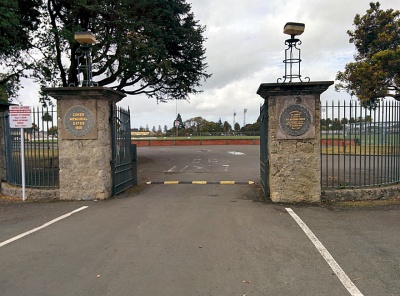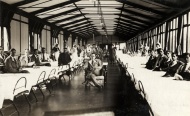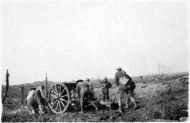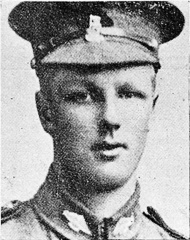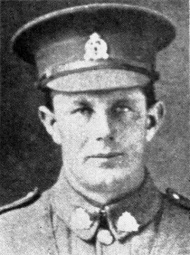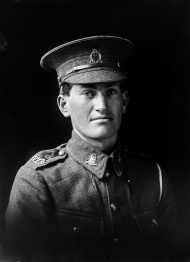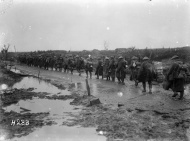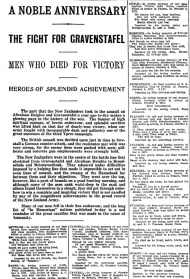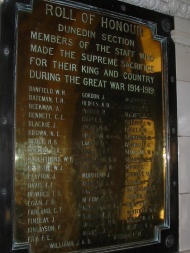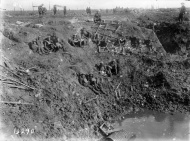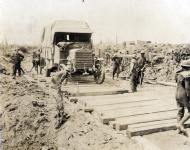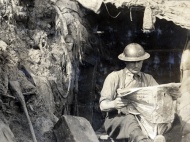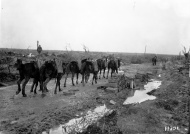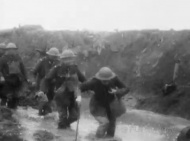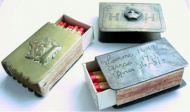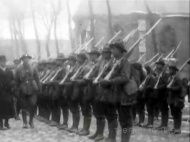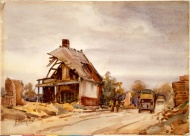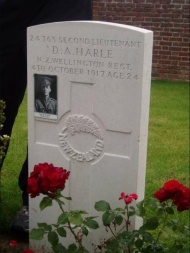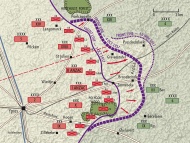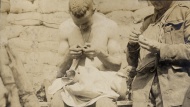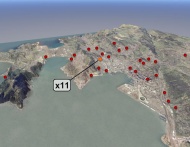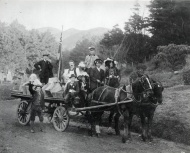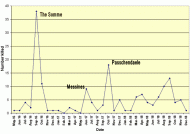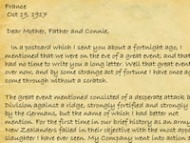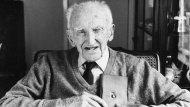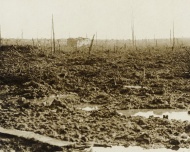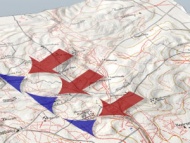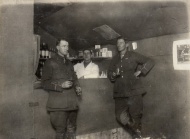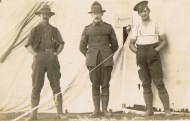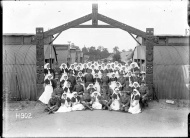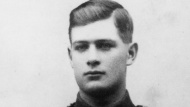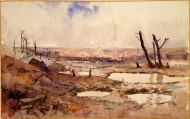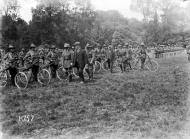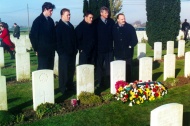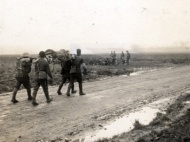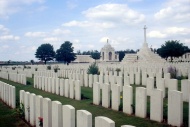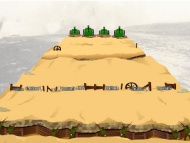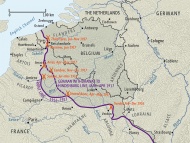Events In History
-
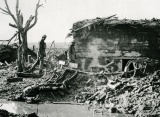 12 October 1917New Zealand's ‘blackest day’ at Passchendaele
12 October 1917New Zealand's ‘blackest day’ at PasschendaeleEver since 1917, Passchendaele has been a byword for the horror of the Great War. In terms of lives lost in a single day, the failed attack on Bellevue Spur on 12 October was probably the greatest disaster in New Zealand’s history. Read more...
-
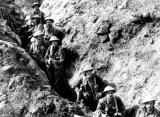 1 March 1916New Zealand Division formed
1 March 1916New Zealand Division formedAfter the evacuation from Gallipoli in December 1915, New Zealand troops returned to Egypt to recover and regroup. In February 1916, it was decided that Australian and New Zealand infantry divisions would be sent to the Western Front. On 1 March, the New Zealand Division was formed. Read more...
Articles
Life in the trenches
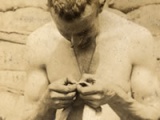
The daily tasks of life went on despite the hellish conditions of the Western Front trenches.
- Page 1 - Life in the trenchesThe daily tasks of life went on despite the hellish conditions of the Western Front
Passchendaele: fighting for Belgium
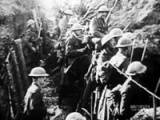
Ever since 1917 Passchendaele has been a byword for the horror of the First World War. The assault on this tiny Belgian village cost the lives of thousands of New Zealand soldiers. But its impact reached far beyond the battlefield, leaving deep scars on many New Zealand communities and families.
-
Page 2 – The battle for Messines
The assault on Passchendaele was part of a vast Allied offensive launched in mid-1917, which, for New Zealanders, started with the Battle for Messines.
-
Page 3 – The Passchendaele offensive
The failed attempt to capture the town of Passchendaele saw more New Zealanders killed in one day than in any other military campaign since 1840.
-
Page 4 – After Passchendaele
Military events in Belgium after the Passchendaele offensive of October 1917, including the failed attack at Polderhoek
-
Page 6 – Helping the wounded
More than 14,000 New Zealanders were wounded between June and December 1917 in Belgium, and medical staff, orderlies, chaplains and stretcher-bearers worked round the clock to
-
Page 7 – Further information
Links and publications relating to New Zealand's involvement in Belgium during the First World War
1917: Arras, Messines and Passchendaele
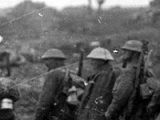
During 1917, Allied hopes of a decisive breakthrough on the Western Front were repeatedly raised, then dashed.
- Page 1 - 1917: Arras, Messines and PasschendaeleDuring 1917, Allied hopes of a decisive breakthrough on the Western Front were repeatedly raised, then
Passchendaele activities
Why do the events at Passchendaele in October 1917 go largely unnoticed in the New Zealand calendar? Can a case be made for reconsidering the place of Anzac Day in our national calendar?
-
Page 2 – Remembering the dead
Acknowledging the sacrifices of those who served or died was an important way for communities, including schools, to make sense of the human cost of war.
-
Page 3 – Turning boys into men
What role did schools play in turning boys into soldiers?
-
Page 4 – Examining primary sources activity, Passchendaele
Activities using images to discuss the role of schools in war
-
Page 6 – Passchendale creative writing exercise
Put yourself in the shoes of a student in the class of 1909 who had to fight in the First World War.
Anzac Day and remembrance
First World War memorials
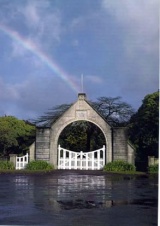
The New Zealand war memorials of the First World War have become part of the common fabric of our lives, like stop signs or lamp-posts. Virtually every township in the country has one, usually in the main street.
- Page 2 - Remembering the dead430 war cemeteries in Northern France, Belgium and the UK and more than 500 public memorials in New Zealand serve as permanent reminders of the terrible toll of the First World
Biographies
-
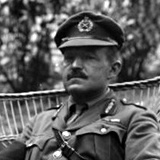 Russell, Andrew Hamilton
Russell, Andrew Hamilton
Andrew Russell was one of New Zealand's most important military leaders of the First World War, known for his strategic brilliance and meticulous planning.
Read more... -
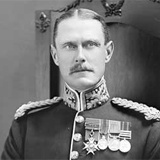 Godley, Alexander John
Godley, Alexander John
Godley was a man with considerable talent for organisation, as evidenced by his training of the Territorial Force in the early 1910s, and later command of the New Zealand Division in the First World War.
Read more...
Related keywords
- napier
- nurses
- WW1
- horses
- artillery
- postal service
- communications
- WW1 stories
- alfred booker
- mangatoki
- battle of the somme
- george chaney
- christchurch
- canterbury infantry regiment
- polderhoek attack
- last post stories
- takaka
- armistice
- memorials
- casualties
- death
- railways
- dunedin
- roll of honour
- new zealand engineers
- western front
- transport
- pioneer battalion
- maori in war
- trenches
- disease
- weapons
- tunnelling
- newspapers
- health
- new zealand infantry
- andrew hamilton russell
- battle of messines
- le quesnoy liberation
- film
- war objects
- german army
- painting
- war art
- george butler
- peter buck
- nugent welch
- wellington college
- commonwealth war graves commission
- war memorials
- belgium
- trentham
- gallipoli campaign
- sari bair offensive
- alexander godley
- maps
- WW1 maps
- oral history
- wellington city
- WW1 home front
- fundraising
- trains
- victoria cross
- letters
- bernard freyberg
- medals
- leisure
- sport
- music
- theatre
- families
- auckland infantry regiment
- tanks
- carving
- cycling
- joseph ward
- william massey
- military cyclist
- all blacks
- david gallaher
- education
- rugby
- anzac
- arras
- samuel frickleton
- leslie andrew
- food
-
Main image: Nelson Park memorial gates
The gates at the Jull Street entrance to Nelson Park in Napier are a memorial to Private Arthur Coker who was killed in the First World War,

